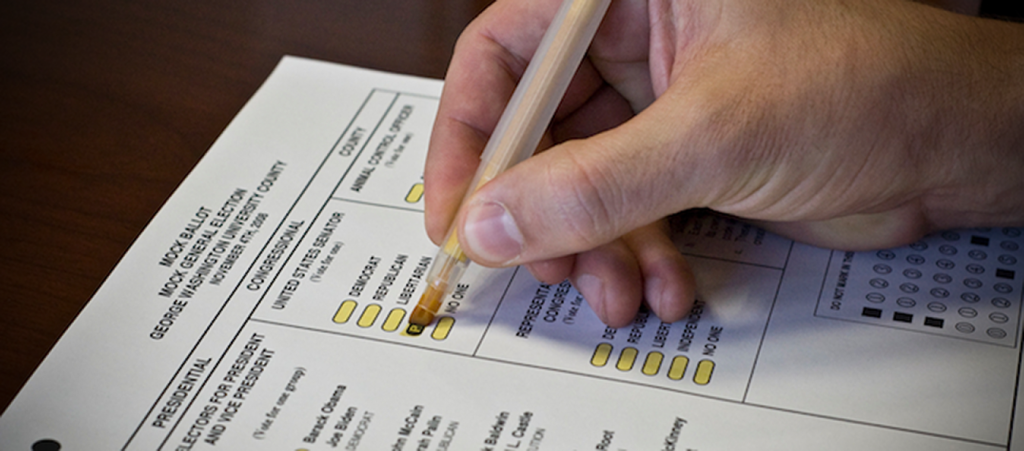Alan Sherman and collaborators develop VoteXX with new strategies for secure online voting
 Remotegrity was the first voter-verifiable Internet voting system used in 2011 for a public office election in Takoma Park, Maryland
Remotegrity was the first voter-verifiable Internet voting system used in 2011 for a public office election in Takoma Park, MarylandAlan Sherman and collaborators develop VoteXX with new strategies for secure online voting
Over the past several months, the topic of online voting has been at the top of the minds of millions of Americans and has been widely debated. Supporters often highlight how it would increase voter turnout through improved accessibility and convenience. Privacy and election integrity are among the top concerns about implementing an online voting system.
Researchers from UMBC and xx.network have been working to design an online voting system that is resistant to coercion and would provide a secure way for people to cast their ballots from computers, tablets, and smartphones in the future. Alan Sherman, professor of computer science and electrical engineering, is developing the system, VoteXX, with David Chaum, a cryptographer known for his work on privacy-centered technology, and Richard Carback ‘05, M.S. ‘08, Ph.D. ‘10, computer science, who has spent his career deflecting would-be hackers.
The security of devices that voters might use to cast their ballot is a significant concern, notes Sherman. He explains that malware on the devices that voters use might change the votes or spy on the voter.
 Alan Sherman, right, talking with Rick Forno on campus in 2018. Photo by Marlayna Demond ’11 for UMBC.
Alan Sherman, right, talking with Rick Forno on campus in 2018. Photo by Marlayna Demond ’11 for UMBC.As described in a press release and the researchers’ new whitepaper, VoteXX allows voters to confirm that their ballots were accurately cast, collected, and counted. This system uses ideas from an earlier system, Remotegrity, that the collaborators developed and used in a municipal election in Takoma Park, Maryland, in 2011. Voters received secret vote codes on a scratch-off card via traditional mail, which they used to hide their votes from the software and hardware. Remotegrity was based on Scantegrity, an earlier in-person verifiable voting that was also used in binding elections in Takoma Park, Maryland.
VoteXX uses a combination of simple strategies and complex cryptography to create a more secure online voting scheme. For example, to address the issues of coercion and vote selling, VoteXX allows voters to cancel or change their vote up to a certain deadline. David Chalm explains how this simple capability undermines vote selling. “You make it possible to flip (change or cancel) that vote outside the voting process. Because a vote buyer cannot be sure you didn’t or won’t flip your vote, they can’t be sure that a voter has been honest with them, making it useless to buy votes.”
This “vote flipping” approach provides a subversively simple yet powerful tool to voters. It’s accomplished by creating a “flip code” during the registration process that allows the voter to flip their vote after casting.
You can read more about this research in a UMBC News article by Megan Hanks.
The post Alan Sherman and collaborators develop VoteXX with new strategies for secure online voting appeared first on Department of Computer Science and Electrical Engineering.
Posted: November 3, 2020, 9:00 PM